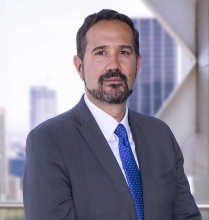International Arbitration Newsletter - May 2019 | Regional Overview: Europe
The most relevant European updates from the global International Arbitration and ADR practice group at Garrigues.
Bulgaria
ICSID tribunal rejects intra-EU ECT claim against Bulgaria by Austrian energy operator
ICSID tribunal has rejected Austrian energy group EVN’s claims under the Energy Charter Treaty and the Austria-Bulgaria bilateral investment treaty worth €850 million claim against Bulgaria on electricity pricing and renewable energy regulation.
EVN filed the claim in 2013 over actions by Bulgarian regulatory authorities and government agencies in relation to the pricing of electricity and compensation for public obligations in respect of renewable energy. The investor alleged that regulators had caused it substantial damage by failing to properly reimburse it for electricity purchased. It also complained about the repeal of regulations that had allowed EVN to charge renewable energy producers for access to the electricity grid. Bulgaria’s Ministry of Finance said EVN was seeking over €850 million in damages.
EVN did not disclose details about the ICSID tribunal’s findings today, but Bulgaria applied to the tribunal in April 2018, requesting leave to file a jurisdictional objection in the wake of the European Court of Justice’s ruling in the Achmea case (Bulgaria was one of 22 EU member states that signed a political declaration in January this year stating that the Achmea ruling precludes intra-EU investment arbitration under the Energy Charter Treaty).
Croatia
ICSID tribunal holds Croatia liable in postal services dispute
An ICSID tribunal has found Croatia liable for failing to protect Dutch entity’s B3 Croatian Courier Coöperatief investment in a postal services enterprise, but declined to grant any of the more than €53 million in damages sought.
The ICSID tribunal found Croatia had breached article 3 of the Croatia-Netherlands bilateral investment treaty (the fair and equitable treatment clause, FET) but determined there was no causal link between the breach and the damages claimed by the investor.
In its ICSID claim, B3 alleged that Croatia’s failure to liberalise its market and regulate Croatian Post’s predatory pricing had led to CityEx’s bankruptcy, violating the FET and expropriation provisions of the BIT. The tribunal rejected the majority of B3's claims, including its primary claim relating to the alleged predatory pricing. It also rejected the Dutch company's claims on expropriation. While the tirbunal found that Croatia’s conduct amounted to a breach of FET under article 3 with respect to "a limited issue set", it however rejected arguments that this breach, or any other acts or omissions by the state, had resulted in any harm to B3.
European Union
Gazprom´s subsidiary threatens first ECT claim against the EU
Gazprom´s subsidiary Nord Stream 2 AG, based in Switzerland, which is developping a natural gas pipeline project, has threatened to bring an Energy Charter Treaty claim against the European Union if it is not exempted from the scope of new EU legislation.
In a letter sent to the president of the European Commission Jean-Claude Juncker, the company notified him of potential breaches of the ECT.
The disputes relates to amendments to the EU’s 2009 gas directive that would extend gas market liberalisation rules to cover gas pipelines importing from non-EU countries. Nord Stream 2 says that if the amendments are implemented and the company is found not to be eligible for derogation, such a measure would be “unreasonable, arbitrary and discriminatory” and in breach of the ECT.
Greece
Greece loses challenge of ICC award in shipyard dispute
The Athens Court of Appeal issued a decision upholding the award obtained by Hellenic Shipyards (HSY), a Greek subsidiary of Abu Dhabi-based shipbuilder Privinvest.
Greece intends to appeal the decision to the Greek Supreme Court.
HSY’s claims relate to the Skaramagas commercial shipyard and naval base just outside Athens. Privinvest acquired a 75% stake in the yard’s operator HSY in 2010. HSY also entered into a contract with the Greek state for the construction of submarines for its navy. However, Privinvest says the state later defaulted on payments for a number of submarines it had commissioned and reneged on promises to place other naval orders, leading Privinvest and HSY to file the ICC claim in 2013. Greece denied that it ever made such promises.
Greece ultimately passed a law that allowed its navy to complete the construction of the submarines using yard employees at zero cost, which the state maintains was done with the consent of HSY and Privinvest.
Serbia
Bulgarian Kornikom brings claim against Serbia
Bulgarian company Kornikom, which is owned by prominent Bulgarian businessman Hristo Kovachki, has filed an ICSID claim against Serbia under the Bulgaria-Serbia bilateral investment treaty over the termination of a privatisation agreement of an underwater mine.
The dispute relates to Kornikom´s privatisation contract entered with the state in 2007, by which it acquired a 70% stake in Rudnik Kovin – the company that runs the Kovin mine situated on the bank of the Danube river in Serbia’s north east. Three years after the purchase, the Serbian government terminated the contract, citing breaches by Kornikom.
Kornikom alleges in the arbitration that Serbia has breached the BIT by expropriating its investment. The value of its claim has not been disclosed.
Spain
Spain fails to challenge arbitrator in ECT claim
Spain has unsuccessfully applied to remove UK arbitrator Vaughan Lowe QC as tribunal chair in an ICSID case brought by Matthias Kruck and several other German solar investors under the Energy Charter Treaty.
Two months after Lowe joined in a decision in a separate ICSID case against Spain that he is also chairing, brought by Cube Infrastructure Fund and other Luxembourgish and French investors under the ECT.
Spain’s challenge to Lowe in the Kruck case concerned alleged pre-judgment of issues common to both arbitrations.
Notably, Lowe is also part of the ICSID tribunal hearing a €4.7 billion claim brought by Swedish investor Vattenfall against Germany, which last year rejected a jurisdictional objection by Germany based on the Achmea decision (Lowe was also part of the tribunal that issued the intra-EU BIT award in favour of Achmea that gave rise to the CJEU proceedings).
However, the challenge was rejected on 14 May 2019 by Lowe’s Australian co-arbitrators, Michael Pryles and Zachary Douglas QC.
Spain requests annulment of solar award
Spain has registered at ICSID its application for annulment of a €64.5 million ICSID award that compensated Dutch-registered Masdar Solar & Wind Cooperatief, a subsidiary of UAE sovereign wealth fund Mubadala for changes to the country’s subsidy regime for renewable energy.
Arguments for annulment include that the ECT does not confer jurisdiction over intra-EU investment disputes – based on the European Court of Justice’s decision in Achmea in March 2018 regarding intra-EU bilateral investment treaties.
Masdar applied last October to enforce the award in the US District Court for the District of Columbia, which is yet to rule on the petition.
Ukraine
Ukranian oil companies obtain payment order against Russia in Crimea disputes
A group of Ukrainian oil and gas companies including Ukrainian state-owned oil and gas producer Ukrnafta and Stabil LLC have won around US$80 million plus interest and costs in a pair of investment treaty claims against Russia over petrol stations and related assets in Crimea that were expropriated following Russia’s annexation of the territory in 2014.
The claims were brought under the Ukraine-Russia bilateral investment treaty and administered by the Permanent Court of Arbitration in The Hague. The claimants in two cases are linked to Ukrainian-Cypriot-Israeli businessman Igor Kolomoisky.
Ukrnafta alleges that it owned 16 petrol stations in Crimea that were seized by armed forces of Russia shortly after its annexation of the territory in 2014. The Stabil claimants owned a separate chain of petrol stations in Crimea that were also seized. Both BIT claims were filed in 2015.
In 2017, the tribunal upheld jurisdiction over both claims, finding that Russia had assumed responsibility under the BIT to protect Ukrainian investments in Crimea, notwithstanding the fact that all of the claimants were domestic investors in Crimea when they made their investments and would not have qualified for BIT protection at that time.
Contacts




-
+52 55 1102 3570
-
+57 601 326 69 99



